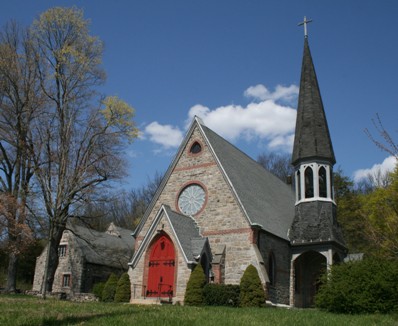By Bob Allen
The atrocity of last December’s Sandy Hook Elementary School shootings transcends politics, raising gun violence to a moral issue that needs to be addressed from pulpits, a pastor said in a dialogue near the end of an April 26 conference on helping Newtown-area clergy minister long term nearly five months after the tragedy.
Asked what he would say to a Red State pastor who desires to preach about guns in a way that doesn’t polarize the congregation into opposite sides of a political debate, Wilton Baptist Church Pastor Jason Coker bristled with passion.
 “Part of me says, ‘Listen, you’re a preacher,’” Coker said. “You preach. Have integrity. If that is what God is putting on your heart, then let it come off your tongue.”
“Part of me says, ‘Listen, you’re a preacher,’” Coker said. “You preach. Have integrity. If that is what God is putting on your heart, then let it come off your tongue.”
Since a Dec. 14 mass murder at Sandy Hook Elementary School near Newtown, Conn., the 20 students killed along with six adult staff members by a heavily armed and presumably deranged gunman have become poster children in a national debate over gun control.
In March, Newtown clergy spearheaded an online letter signed by more than 4,000 congregational leaders urging the U.S. Senate to pass comprehensive gun-violence legislation.
Last week, family members of Newtown victims slammed the Senate for failing to get the 60 votes needed to pass a bill to expand gun background checks.
President Obama called the Senate vote “round one,” prompting one pundit to speculate that the second round for gun control legislation might require a “next Newtown” for motivation.
Greg Hunt, author of Leading Congregations through Crisis and a keynote presenter at the Clergy and Crisis conference sponsored by state and national Cooperative Baptist Fellowship organizations at Coker’s church, said he heard multiple reasons that people gave for opposing gun-control legislation.
Hunt said some people view any gun control as a violation of the Second Amendment right to bear arms, while others say current proposals don’t do enough to keep deadly weapons out of the hands of people who shouldn’t have them.
Hunt, a former CBF pastor, said he was never known for preaching on political issues, but the Bible has much to say about the Christian response to an aggressive and violent society.
Hunt cited the Harvard Negotiation Project, which works to improve the theory and practice of conflict resolution and negotiation. He said a core principle of theirs is to avoid letting parties get locked into a position.
“One of the non-starters is when people get locked into a particular position,” Hunt said. “Move the conversation beyond positions to underlying concerns.”
“When you can get people to peel back and actually deliberate about underlying concerns, oftentimes you actually find common ground,” Hunt said. “There’s much more willingness to concede a point.”
Despite the intensity of the debate over guns, Hunt said polls show there is broad agreement about a number of issues. A new Gallup poll said more than 80 percent of Americans support expanded background check gun legislation, and two-thirds said the Senate should have passed the particular law that it voted down April 17.
Other faith leaders, meanwhile, urged lawmakers not to overreact with gun laws that unfairly scapegoat individuals who are mentally ill.
American Baptist Home Mission Societies recently provided leadership for development of Grounded in Faith: Resources on Mental Health and Gun Violence, a new resource released by the Interfaith Disability Advocacy Coalition.
The resource is designed for congregational leaders, disability advocates and other concerned persons who wish to ensure that the on-going debate around gun violence does not stigmatize people with mental illnesses and deprive them of their rights and freedoms.
“In the wake of the horrific shootings in Newtown, as with other tragedies in Oak Creek, Aurora, Tucson and Blacksburg, there has been much discussion of the relationship between mental illness and violence, particularly mass violence,” the resource says.
While lamenting statistics that gun violence claims 80 American lives each day, mental health advocates cautioned against stigmatizing millions of Americans with mental illness by suggesting they pose a threat of mass violence.
Studies say the contribution to gun violence by persons with mental illness is no larger than the contribution made by persons who do not have mental illness, and other demographic and socioeconomic contribute much more.
Most violence is carried out by people who are not mentally ill, the resource points out, and people with mental illness and other disabilities are more often the victims of violence than the perpetrators.
CBF Disaster Response sponsored the Clergy and Crisis conference with support from the Cooperative Baptist Fellowships in Arkansas, Heartland, Oklahoma, South Carolina and Texas.
“We all have been shaped by what happened in Newtown just four months ago,” Coker wrote in a welcome letter included in a resource packet for conference participants. “As a care provider, we all have worked hard in the helping process. I hope this conference can give you energy to keep providing care and counseling to those who hurt, and equip you with some intellectual tools that it takes to continue in that work.”
